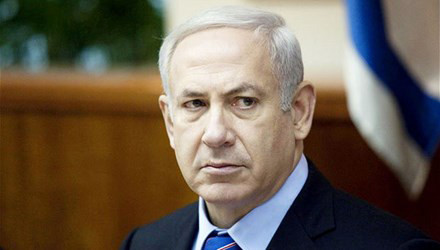Israeli political conflicts and their impacts on the Middle East region
(Baonghean) - For the first time in two decades, the Israeli parliament has had to adjourn before the end of its term to pave the way for early elections. Factional conflicts and disagreements over the past few years have led to a crisis within Prime Minister Benjamin Netanyahu's ruling coalition. Not only have these developments destabilized Israel, they have also affected major regional issues such as Middle East peace with Palestine or the Iranian nuclear dossier.
| RELATED NEWS |
|---|
Although the coalition government of Israeli Prime Minister Benjamin Netanyahu has been in power since last year, it has faced a series of major conflicts on a range of issues, such as the defense budget, the “Jewish State” bill, policies towards Palestine, and the Iranian nuclear issue. The latest development is that Israeli lawmakers voted to dissolve the Knesset, which is a consequence of these conflicts and disagreements. According to the plan, the Knesset election in Israel will be held in 2017, but the new date has been approved as March 17, 2015. The vote took place less than a week after Prime Minister Netanyahu called for the dissolution of the Knesset and the dismissal of the two ministers of Finance and Justice. This can be considered the culmination of the conflicts within Israeli politics and a sign of the disintegration of the ruling coalition, which is facing too many disagreements. Regarding the reason for the dismissal of these two ministers, Mr. Netanyahu said that the Finance and Justice Ministers were secretly forming another coalition and this would certainly seriously affect the government. However, Justice Minister Tzipi Livni denied the accusations, and criticized Mr. Netanyahu for putting his political interests above the Israeli people.
 |
| Israeli Prime Minister Benjamin Netanyahu. Photo: Reuters |
Criticism had previously flared up when Mr Netanyahu passed the controversial “Jewish State” bill in late November. Specifically, this bill defines the nature of the State of Israel as a Jewish state and Hebrew as the official language, while Arabic will have a "special status". Opponents say that this bill could erode democracy and harm the rights of the Arab community in this country. Analysts say that this bill could further increase tensions with Palestinians and Arab Israelis, and could cause Prime Minister Netanyahu's coalition government to falter due to strong opposition from more moderate partners in the ruling coalition. And those predictions have come true. In fact, the Israeli people have long been not too surprised by the conflicts in the ruling government. This can be said to be the 32nd government to be dissolved in the past 67 years. As early as 2012, another political upheaval was likened to an earthquake in Israeli politics when Defense Minister Ehud Barak - a close associate of A close associate of Prime Minister Netanyahu has announced his withdrawal from the Labor Party to form a new party. Barak's departure has also led to a series of resignations from other ministers.
These internal divisions are one of the reasons why many issues such as the Palestinian peace process or the Iran dossier have reached a dead end. Specifically, Israel's military leaders still strongly oppose the idea of unilaterally attacking Iran because they are concerned that such an attack could spark a regional conflict with unpredictable consequences. However, the Israeli Prime Minister is still steadfast that the time for diplomatic measures and sanctions against Iran is over and Israel needs to protect itself from the "threat" that is Iran. Meanwhile, regarding relations with Palestine, while the chairwoman of the Hatnuah party in the ruling coalition - Ms. Livni said that promoting a peace agreement based on a two-state solution with Palestine should be considered a basic priority of Israel's foreign policy. However, Prime Minister Netanyahu does not want that.
Despite the conflict that forced the dissolution of the Knesset and early general elections, up to now, the Israeli Prime Minister and his Likud party are still predicted to be the largest party group to emerge and Mr. Netanyahu will almost certainly continue to hold the position of Prime Minister for a fourth term. This signals that a new government will still follow Mr. Netanyahu's hard-line approach on difficult regional issues. In particular, the newly passed "Jewish State" bill will certainly continue to be implemented during Prime Minister Netanyahu's term. Analysts say that this is a fatal blow and adds fuel to the fire of the Middle East peace process when it not only does not mention most of the ethnic and religious conflicts with Palestine but also affirms that Israel is not ready to reconcile the differences. Therefore, a peaceful solution to the Palestinian issue or the Iranian nuclear dossier will still not be able to have an answer soon, as long as Israel continues to maintain its hard-line policy.
Phuong Hoa






